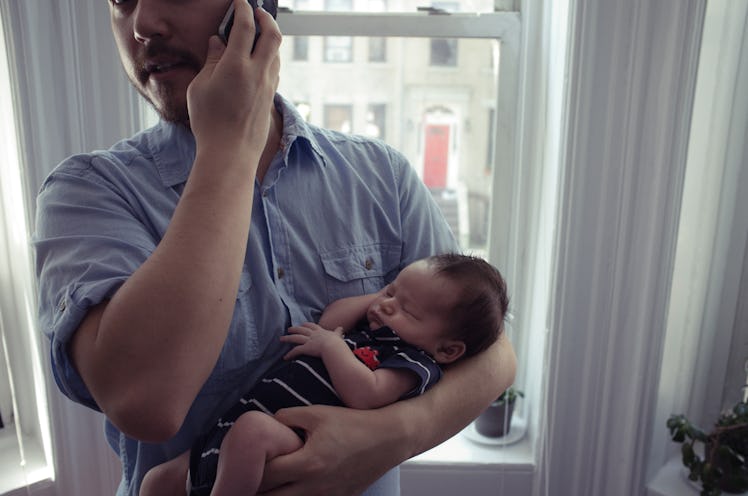How The Family Medical Leave Act Works For Dads
Thanks, government.

The Family Medical Leave Act (FMLA) is a federal safety net. And that’s an appropriate term considering you may need to use it as you walk the tightrope between being a good Dad who wants to bond with his baby and an unemployed sucker with a new mouth to feed.
The FMLA was enacted in 1993 (progressive!) and guarantees up to 12 weeks of unpaid leave for reasons including the birth or adoption of a kid. Recently, a Supreme Court decision supporting same-sex couples extended the leave protections to both lesbians and gay men, who’ve also been known to have jobs.
Here’s how the FMLA works:
- As long as you’ve been a full-time or part-time employee, at a company with 50 employees within a 75 mile radius, and have worked there at least 1,250 hours within 12 months prior to your leave request, you’re totally golden. So, not complicated at all.
- If you’re in a Jim-and-Pam situation (you know, from that old network television show, The Office?), the 2 of you get 12 weeks combined, which is both dumb and a good excuse for you to finally stop working together.
- Leave must be taken continuously within 12 months of the time off request
- You can substitute any portion of your FMLA time with accrued vacation, personal, and/or sick days if you prefer to actually get paid while providing for your tiny, helpless, newborn child. Apparently the government is a fan of cruel, cruel irony.
- When you return, your boss will probably give you your old gig back, but totally doesn’t have to. In fact they can give you an “equivalent.” You are required to receive the same pay, same benefits and same terms and conditions of your previous position, however. Left the office as purchasing manager? Hope you enjoy your new career as marketing manager!
Keep in mind these are just the basic protections the FMLA provides. Individual states can provide additional benefits and protections to new parents — and many do, with varying degrees of success. In fact, the upshot of a recent report card about how well states do at supporting new moms and dads reveals you probably want to move to the West Coast, or New York. So, the West Coast then.
This article was originally published on